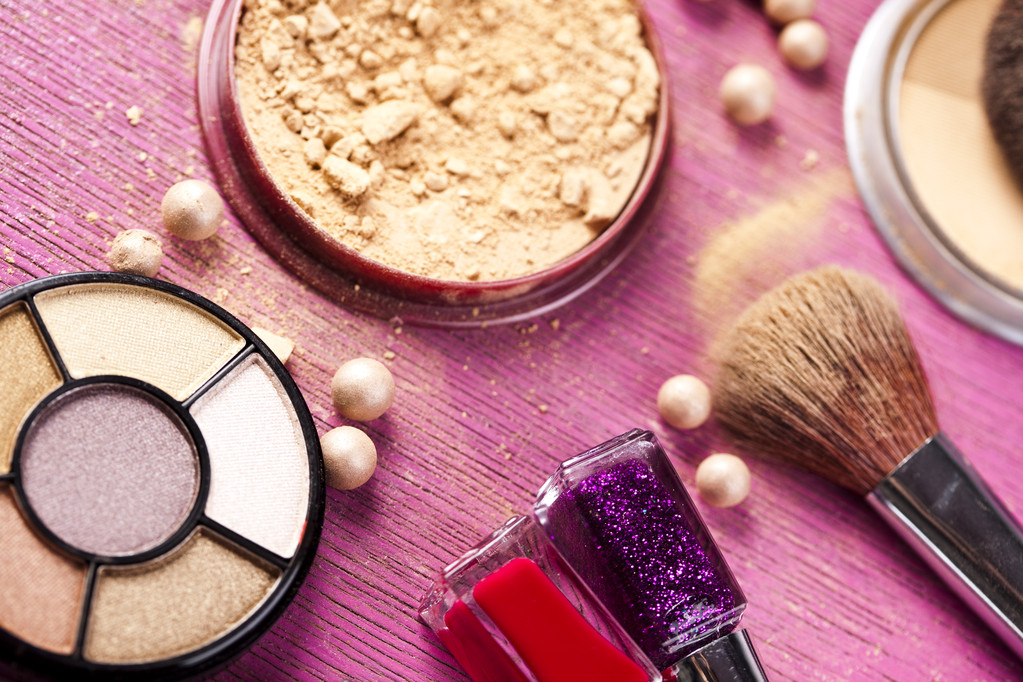Discover the essential information about mineral oil, including its uses, benefits, and potential risks.
What You Need to Know About Mineral Oil
Mineral oil – you’ve probably heard of it, but do you really understand what it is and why it’s used in so many different ways? Don’t worry, we’re here to break it all down for you. From its definition and origin to its role in various industries, health and safety aspects, environmental impact, and how to use it safely, we’ve got you covered. So sit back, relax, and let’s dive into the fascinating world of mineral oil.

Understanding Mineral Oil
Definition and Origin of Mineral Oil
Let’s start with the basics. What exactly is mineral oil? Well, it’s a clear, odorless liquid derived from petroleum. Yes, you read that right – petroleum! But before you start worrying about slathering oil on your skin or ingesting it, hold on. The petroleum used to make mineral oil goes through a rigorous refining process, removing impurities and ensuring its safety for various applications.
Now, where does this magical liquid come from? Well, it’s found deep beneath the Earth’s surface, nestled amongst rocks and other minerals. So you could say mineral oil is like a hidden treasure waiting to be discovered and put to good use.
But how exactly is mineral oil extracted from the Earth? The process begins with drilling deep into the ground, reaching the layers where petroleum and other valuable substances are located. Once the oil is reached, it is carefully pumped to the surface and transported to refineries.
At the refineries, the crude oil undergoes a series of complex processes known as refining. These processes involve separating the different components of the crude oil, such as gasoline, diesel, and yes, mineral oil. Through distillation, the crude oil is heated to separate the lighter components, leaving behind the heavier ones, including mineral oil.
The extracted mineral oil is then subjected to further refining steps to ensure its purity and safety. These steps may include filtration, treatment with chemicals to remove impurities, and even additional distillation processes. The end result is a high-quality, refined mineral oil that is ready to be used in various industries.
Different Types of Mineral Oil
Not all mineral oils are created equal. There are different types that serve specific purposes. For example, there’s food-grade mineral oil, which is often used to lubricate kitchen utensils, seal cutting boards, and protect wooden surfaces from drying out. This type of mineral oil is carefully regulated to ensure it meets strict safety standards and is suitable for contact with food.
Then there’s pharmaceutical-grade mineral oil, which is commonly used as a lubricant for certain medical procedures. Its purity and consistency make it ideal for use in medical settings, where precision and safety are of utmost importance.
And let’s not forget about the mineral oil found in cosmetics. This is the kind that often gets a bad rap, but we’ll dig deeper into that later.
In addition to these specific types, there are also various grades of mineral oil based on their viscosity. Viscosity refers to the thickness or consistency of the oil. Some mineral oils have a low viscosity, making them more fluid and suitable for applications such as lubricating machinery. On the other hand, high-viscosity mineral oils are thicker and often used in products like hydraulic fluids.
So, as you can see, mineral oil is a versatile substance with different variations to suit different needs. Whether it’s keeping your kitchen utensils in top shape, aiding in medical procedures, or ensuring the smooth operation of machinery, mineral oil has a role to play in various industries and applications.
The Role of Mineral Oil in Various Industries
Mineral oil, a versatile compound, plays a significant role in various industries, ranging from cosmetics to food and even the pharmaceutical industry. Let’s explore the fascinating ways in which mineral oil contributes to each of these sectors.
Mineral Oil in Cosmetics
Ah, cosmetics – the realm of beauty and self-expression. Mineral oil, despite its controversial reputation, is widely used in skincare products. Its excellent moisturizing properties make it a popular ingredient in moisturizers, lip balms, and foundations. When applied to the skin, mineral oil helps lock in hydration, leaving your skin supple and radiant.
But that’s not all! Mineral oil also acts as a protective barrier, shielding your skin from external aggressors like pollution and harsh weather conditions. So, not only does it provide moisture, but it also helps keep your skin safe from environmental stressors. The next time someone tells you mineral oil is the enemy, you can confidently say, “Not so fast, my friend!”
Mineral Oil in the Food Industry
Now, let’s move from the world of beauty to the realm of food. Mineral oil also finds its place in the culinary arts. Food-grade mineral oil, specifically formulated for consumption, is commonly used to prevent wooden cutting boards and utensils from drying out and cracking. By regularly applying mineral oil to these surfaces, you can ensure they remain smooth and intact, making your food preparation experience more enjoyable and hygienic.
So, the next time you’re prepping your favorite meal on a wooden cutting board, you can thank mineral oil for its role in keeping everything smooth and intact. It’s a behind-the-scenes hero in the kitchen!
Mineral Oil in the Pharmaceutical Industry
Now, let’s head over to the world of medicine, where mineral oil continues to demonstrate its versatility. In the pharmaceutical industry, mineral oil serves as a valuable lubricant for various medical procedures. It is commonly used during the insertion of catheters, helping reduce discomfort and facilitating a smoother process for patients.
Furthermore, mineral oil aids in bowel movements for individuals experiencing constipation or other related issues. Its slippery nature helps alleviate discomfort and promotes a more regular digestive system.
So, you see, mineral oil isn’t just a one-trick pony. It’s a versatile compound that plays a vital role in many different industries, from cosmetics to food and pharmaceuticals. Its moisturizing properties, protective abilities, and lubricating qualities make it a valuable asset across various sectors.
Health and Safety Aspects of Mineral Oil
Mineral oil, a versatile substance widely used in various industries, has gained attention not only for its industrial applications but also for potential health benefits it may offer. While primarily known for its lubricating properties, mineral oil has shown promise in providing relief for a range of skin conditions and even aiding in digestive health.
Potential Health Benefits of Mineral Oil
When it comes to skincare, mineral oil has been found to be an effective moisturizer for dry skin. Its ability to lock in moisture helps to prevent water loss and keep the skin hydrated. Additionally, mineral oil has soothing properties that can alleviate irritation and redness, making it a popular ingredient in products designed to calm sensitive skin.
Furthermore, mineral oil has been known to promote healing for certain skin conditions. It forms a protective barrier on the skin’s surface, shielding it from external irritants and allowing the skin to recover. This makes it particularly beneficial for individuals with eczema, psoriasis, or other inflammatory skin conditions.
Aside from its topical benefits, mineral oil is also commonly used as a laxative to relieve temporary constipation. When ingested in appropriate amounts, it acts as a lubricant in the digestive system, facilitating the smooth passage of stool. This gentle and non-stimulant approach to alleviating constipation makes mineral oil a preferred choice for those seeking relief without harsh side effects.
With its multifaceted properties, mineral oil proves to be more than just a simple lubricant. Its potential health benefits extend beyond its industrial applications, making it a valuable ingredient in both skincare and digestive health products.
Possible Side Effects and Risks
While mineral oil offers various health benefits, it is crucial to be aware of potential side effects and risks associated with its use. When it comes to skincare, individuals with acne-prone skin should exercise caution when using products containing mineral oil. Due to its occlusive nature, mineral oil can potentially clog pores, leading to the formation of comedones and exacerbating breakouts. Therefore, it is advisable to opt for non-comedogenic alternatives for acne-prone individuals.
Moreover, excessive ingestion of mineral oil can result in digestive issues. Although it is generally safe when used as a laxative in recommended doses, consuming large amounts of mineral oil can cause abdominal discomfort, diarrhea, and nutrient malabsorption. Therefore, it is essential to follow the instructions provided by healthcare professionals or product labels to ensure safe and appropriate use.
It is worth noting that while mineral oil has been deemed safe for external use and as a laxative, there is ongoing debate regarding its safety when used in food-grade products. Some studies suggest that long-term consumption of food-grade mineral oil may pose health risks, such as potential interference with nutrient absorption. As research in this area continues, it is important to stay informed and make informed decisions regarding the use of mineral oil in different contexts.
In conclusion, mineral oil offers a range of potential health benefits, from moisturizing dry skin to aiding in digestive health. However, it is essential to consider individual circumstances, such as skin type and dosage, to maximize the benefits while minimizing any potential risks. As with any skincare or health-related product, consulting with healthcare professionals or dermatologists can provide personalized guidance and ensure the safe and effective use of mineral oil.
Environmental Impact of Mineral Oil
Mineral Oil and Pollution
We can’t discuss the world of mineral oil without addressing its impact on the environment. While it’s true that mineral oil is derived from petroleum, which is a non-renewable resource, it’s important to note that the refining process ensures its purity and safety for various applications. However, improper disposal of mineral oil can indeed harm the environment, so it’s crucial to handle and dispose of it responsibly.
Sustainable Alternatives to Mineral Oil
As we become more conscious of our ecological footprint, it’s only natural that we explore sustainable alternatives to mineral oil. Thankfully, there are options available! Many companies are now utilizing plant-based oils and other renewable resources in their products, reducing their reliance on mineral oil. So you can enjoy the benefits of oils without worrying about their environmental impact.
How to Use Mineral Oil Safely
Guidelines for Cosmetic Use
When it comes to using mineral oil in skincare, it’s essential to follow some guidelines. First and foremost, choose products that are specifically formulated for your skin type and concerns. Patch testing is also a great way to ensure you don’t have any adverse reactions. And remember, a little goes a long way – using excessive amounts won’t necessarily yield better results.

Recommendations for Dietary Use
If you’re considering using mineral oil as a laxative, it’s crucial to seek guidance from a healthcare professional. They can provide recommendations tailored to your needs and help you navigate the proper dosage and duration of use. Remember, self-medication is never a good idea.
So there you have it – a comprehensive guide to mineral oil. From its humble origin to its diverse applications across industries, we hope you’ve gained a newfound appreciation for this versatile liquid. Just remember to use it wisely and responsibly. Happy oil exploring!






[…] what exactly is an emulsifier? Well, think of it as a mediator between oil and water. You know how oil and water don’t mix? That’s where an emulsifier like polysorbate 60 comes in. It has […]
[…] addition to coconut oil, Leonor Greyl products often contain jojoba oil. This versatile oil is rich in vitamins and minerals that nourish the hair follicles, promoting healthy hair growth. It also helps to balance the […]